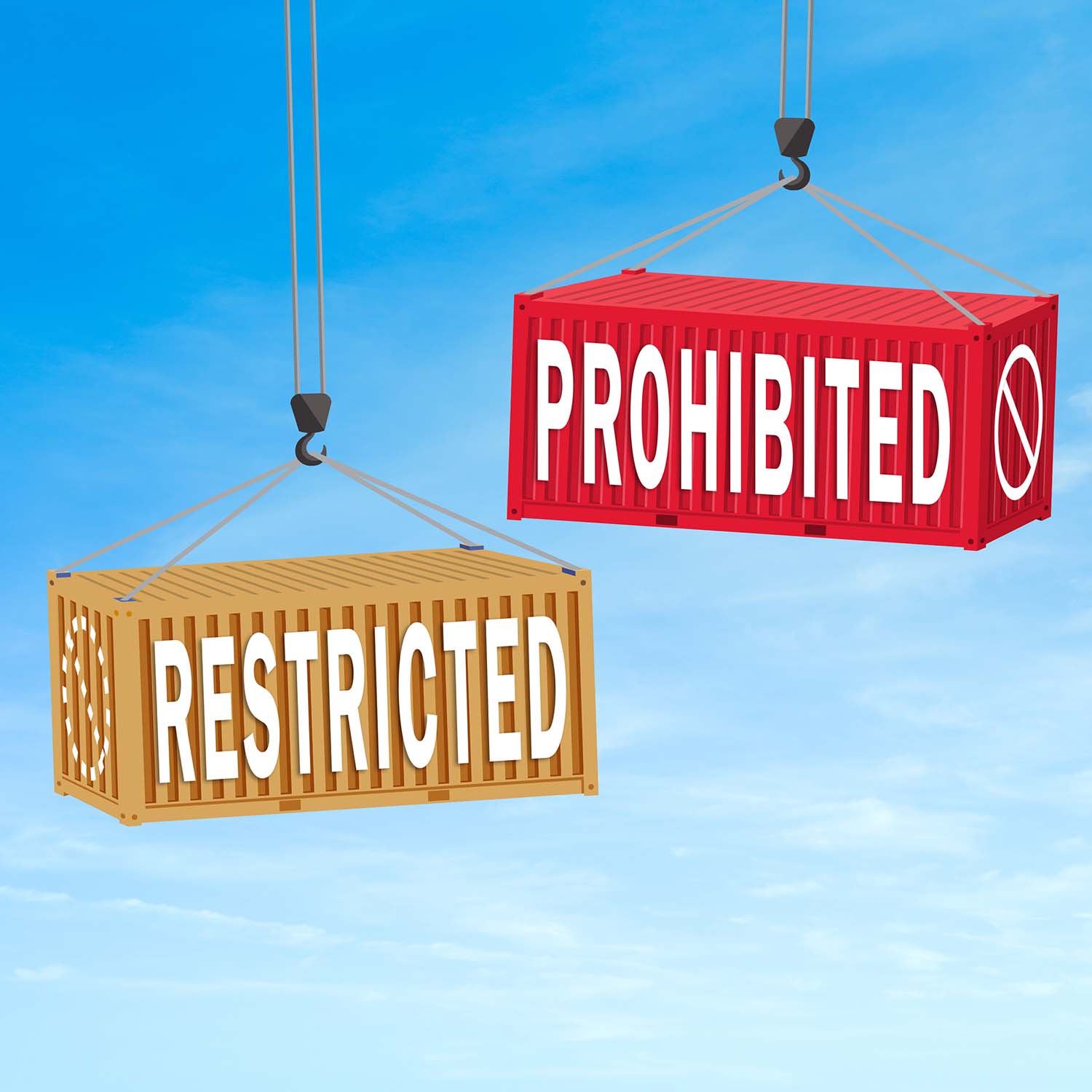Export: Restricted and Prohibited
Restrictions and Prohibitions
All countries restrict or prohibit the import and export of certain articles based upon:
- Concerns for health, safety, and public morality (e.g., foodstuffs, agricultural products, live animals, biologic materials, pharmaceuticals, illicit drugs, chemicals, hazardous products, and materials deemed indecent).
- Protection of the physical and economic security of the state (e.g., arms, armaments, dual-use technology, radio and television transmitters and receivers, radioactive materials, seditious materials, and currency).
- Economic protection or subsidization of domestic industry (e.g., non-tariff barriers to trade for imports and control of natural resources for exports).
- Enforcement of provisions of multi-lateral trade agreements (e.g., those designed to protect endangered and threatened species of animals and plants and those designed to protect copyright, patent, and trademark holders against infringement).
Restricted
Restricted articles may be commercially exported only with authorization from local authorities. The restriction may stem from Chinese protective measures or from international treaties or conventions to which China is a party. Among China's provisions are quotas, related licensing requirements, and duties.
China’s export controls affect a wide range of products, including:
- Aircraft
- Catalytic converters
- Ceramics
- Chemicals
- Fiber optic cables
- Gold and silver products
- Guns and weapons (strictly controlled by license)
- Hazardous and other wastes (per the Basel Convention on Hazardous Wastes)
- Medical imagery
- Ozone-depleting substances (per the Montreal Protocol)
- Radio reception equipment, transmission equipment, and coding equipment
- Refined petroleum products
- Refrigerators
- Semiconductor chips
- Soil
- Steel
- Technology related to AI
- Tobacco
- Toxic chemicals as listed in the List of Toxic Chemicals Banned or Severely Restricted in the People’s Republic of China published by the State Environmental Protection Agency (SEPA)
- Wildlife controlled by health restrictions
- Wildlife controlled by the Convention on International Trade in Endangered Species of Wild Fauna and Flora (CITES)
Prohibited
Media
- Audio tapes
- Computer storage media
- Films
- Gramophone records
- Manuscripts
- Photos
- Printed matter
- Video compact discs
- Video tapes
Articles of Cultural or Natural Value
- Antiques and other cultural items created before 1949
- Chinese ephedra (medicinal plant)
- Ivory
- Musk
- Natural bezoars
- Nostoc flagelliforme (black moss)
- Platinum in plates and sheets
- Platinum in unwrought or in powder form
- Products made by prisoners
- Rare and endangered animals and/or plants, including their specimens and seeds
- Rhinoceros horns
- Stamps over 100 years old
- Tiger bones
Other
- Commodities considered dangerous to national security
- Used electronic and machinery products
- Prohibited
Note: The above information is subject to change. Importers and exporters are advised to obtain the most current information from a customs broker, freight forwarder, logistics professionals, or local customs authorities.
Source: General Administration of Customs
Article written for World Trade Press by Taylor Holloran, Jennifer Goheen, and Nina Bellucci.
Copyright © 1993—2025 World Trade Press. All rights reserved.

 China
China 